Signs of depression in teens and how to deal with them

Most of the world's adult population suffers from depression. However, adults are very bitter to realize that their children also suffer from depression. Depression is very common among teenagers. This phenomenon must be fought, despite the difficulties that arise. To do this correctly, you need to familiarize yourself with the following information.

What it is?
The depressive triad includes the main points:
- loss of the ability to experience joy;
- spasmodic mood (where negative thoughts and outlooks on life are present);
- motor retardation.
Teenage depression has these symptoms. Therefore, such a teenager's state of health is considered very serious.
The course of a negative state in adolescence differs significantly from the course of the same negative state in adults.

Teenagers very often have problems "out of the blue." This happens because the fragile psyche reacts very violently to minor negative manifestations from the side of society.
This factor is joined by the following phenomena: surges in the hormonal background and changes in internal organs due to their growth. In a small part of children who have reached a certain age, these problems cause full-fledged depression.
Adults need to understand that depression at this age cannot be attributed to laziness. It cannot be overcome with persuasion and willpower.
And this means that you need to immediately begin to take measures to eliminate such manifestations.Then the depressed state will not turn into a severe form, and it will be possible to completely get rid of the depression.

Views
Youthful depression has a complex course. Therefore, it is divided into types.
Depressive state
With such a state of mind, a teenager has a full set of symptoms: depression, lethargy and indifference to everything that surrounds him. It is usually very difficult for parents to draw the line between normal adolescent behavior and depression. In both cases, this factor appears against the background of a physiological crisis. To identify the problem, you need to talk to the child and find out how well the teenager controls his own feelings.
If you notice the presence of negative notes of a behavioral nature during a conversation, then be vigilant, and then act according to the situation.

Minor depression
It is very difficult for attentive parents not to notice this condition. If your child's mood changes very often, then this is a signal for action. For example: your child suddenly becomes very cheerful and cheerful, and after a short time the teenager frowns and even wants to cry. Mild depression causes sudden mood swings. Problems appear almost out of the blue. In order not to start the disease, you need to seek help from a specialist in time.

Atypical
With this type of mental illness, the child suffers not only from depression and mood swings, but also from other symptoms of the disease. For example, a teenager suddenly has a very strong appetite. The child begins to eat a lot and uncontrollably. And this is not the only sign that speaks of the onset of the disease. If your child has insomnia or, conversely, drowsiness, then you need to sound the alarm and take measures to get out of the negative situation.

Postnatal
This disease is temporary. It is well eliminated with the correct diagnosis and the correct approach to treatment.
Postnatal depression is common among female adolescents who become mothers.
Usually, the disease begins to develop immediately after childbirth. Parents need to take care of their child for some time in order to avoid negative consequences.

Recurrent
Has unusual features. Recurrent depression occurs in adolescents about once or twice a month. The duration of this state is approximately 3 days. Such negative symptoms should alert parents. If you suspect a disease, see your doctor.
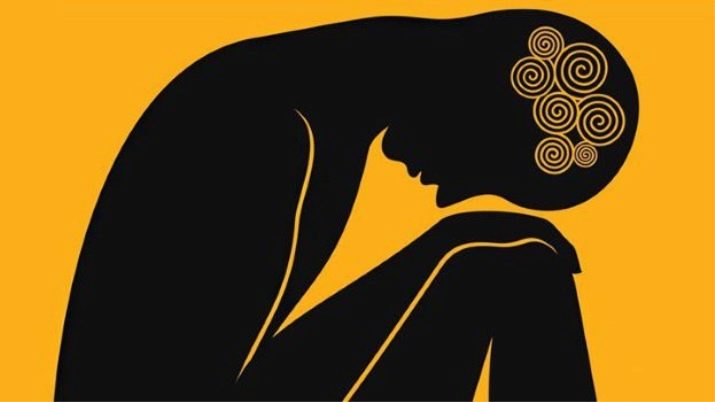
Dysthymia
By and large, this species is considered "chronic". True, this disease always proceeds in a relatively mild form. This condition is very difficult to determine despite the subject's depressed mood. Therefore, specialists can make an accurate diagnosis only after long-term (2-year) observations.
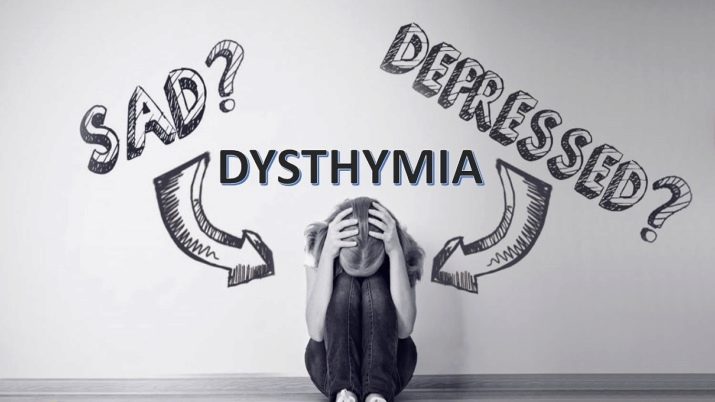
Stages
To begin with, teenage depression develops within six months. At this time, events may occur in the child's life that will either aggravate the condition or improve it. Naturally, such events can be either very positive or very negative.
In the latter case, the disease completely captures the consciousness of the adolescent and begins to actively develop.
Development has several stages.
- In the first stage, the subject becomes irritable in character. He doesn't sleep well. Behavior becomes unmanageable. And this means that the child goes against his parents: is rude and skips school. Thus, the child shows a protest mood.
- In the second stage, the child develops alienation from the world around him. About two months after the onset of depression, he withdraws into himself and stops communicating with his parents and friends. All the time the child is at home half asleep or sits at the computer.
- When the third stage occurs, the child may develop suicidal thoughts. Subsequently, they can be implemented. Along with bad thoughts, the child becomes very aggressive. He yells at his parents and behaves inappropriately with peers at school.
- After the onset of the fourth stage, the teenager develops neuroses. His limbs may twitch from time to time. A child can wander the streets for hours along the same route. At this time, he already ceases to experience any emotions.
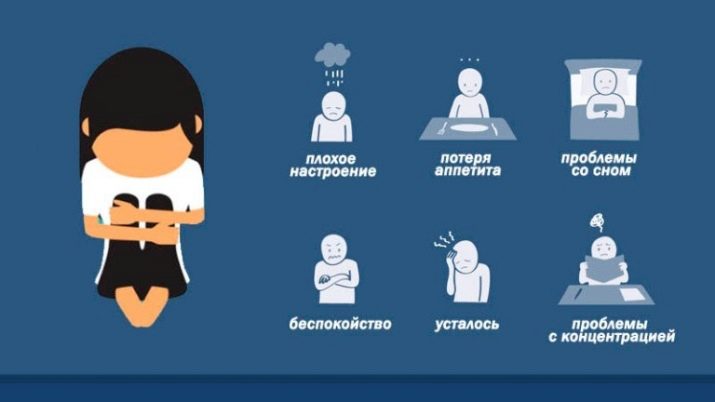
If the disease is not noticed in time, then it will begin to actively progress. Then tearfulness will appear in the child's behavior. Pessimistic attitudes will lead to the fact that the teenager seriously thinks about the suicidal act.
Please note: teenagers are at risk. Therefore, at this time, parents need to be vigilant and work to anticipate the development of negative conditions.
If the first two stages of a depressive disorder can still be quickly corrected, then in stages 3 and 4, drug treatment is indispensable.
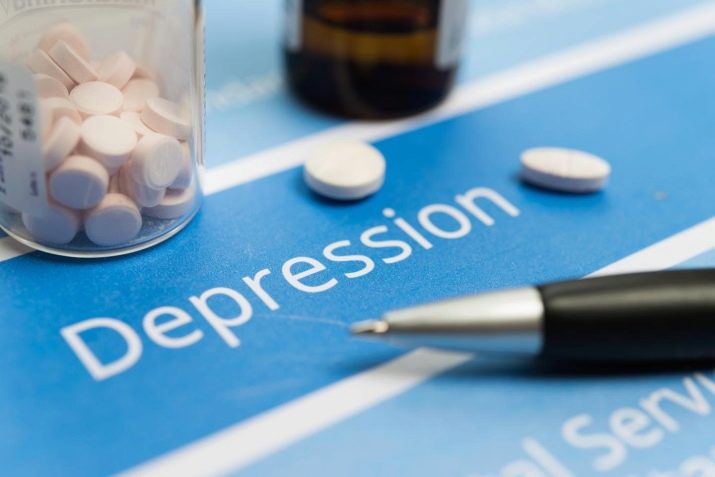
Parents can diagnose themselves and find out if their child is in danger or not. To do this, you can use the diagnostics, which is carried out according to the Beck scale. This technique was developed in the 60s of the last century. Its authors are the American professor A. T. Beck, a practicing psychotherapy, and his numerous colleagues. Thanks to some observations of the authors of this method, they were able to identify a limited set of symptoms of depression.

To obtain the necessary information about the patient, the authors of the method used a literal description of the symptoms. For example, people answer the questions posed, and their answers are arranged in a certain system. With the help of it, conclusions are drawn about the course of depression.
The Beck scale provides a story about the sensations and feelings experienced by the patient. According to the results of the analysis of the data obtained as a result, the psychoemotional state of the patient is revealed.
For example, if a person suffers from so-called mild depression, then the results will show: negative thoughts are present in his mind. However, such thoughts are unobtrusive. This means that in this case, with proper treatment, a rapid regression is possible.
If you are interested in this method, then know that it is freely available. It can be easily used for personal purposes.

Causes
All depressions have types and stages. However, you should always pay attention to the very first manifestations of the disease, such as lethargy, lack of interest in the world around you, etc. The causes of depression always have a negative connotation. It's just that in one case it may not be as negatively vivid as in another. Let's list the main reasons that may well lead to the onset of depression.
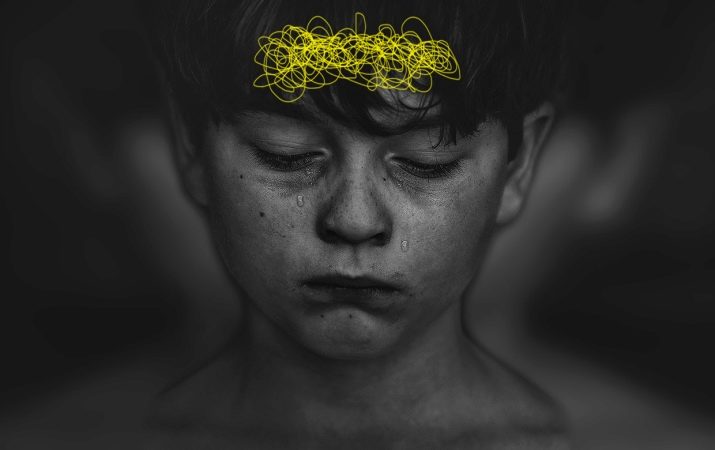
Short term stress
This condition is difficult for a child to survive at the age of 12 and 13 years. However, if the child has always been and continues to be under the scrutiny of adults, a stressful situation of this kind will not cause very strong harm to the child's fragile psyche. For example, a teenager was on the street and accidentally witnessed an accident. This incident will cause a storm of emotions in his soul, but they will quickly subside when the child comes home and calms down.
However, even at the age of 14-15, adolescents will not develop a very strong negative state from a one-time stressful situation, if psychological assistance is provided in time. This can be explained simply: in children, attention can very quickly switch from one object to another or from one event to another. Therefore, it is easy for them to forget the negative moment that flashed and disappeared.
However, a stressful situation, which is very long-term, can lead a child at either 11 or 16 years old to develop very severe depression.For example, if there is a loss of a loved one (father or mother), then this situation will remind of itself for a very long time. As a result, a reactive state will come, namely, the last stage of depression, the symptoms of which were described just above.
In this case, special attention must be paid to children who are at risk. In adolescents, the emotional background is quite unstable due to the fact that hormonal fluctuations are in motion all the time.

If the transitional age coincides with the onset of very long-term stress, then full-fledged depression may occur with all the ensuing consequences.
Children of any age are very impressionable. Why? Because a child's mind is in a developmental stage all the time. Often, a child simply cannot explain a particular situation to himself. From this, he begins to go into a panic mood and suffer a lot. Let's look at the most common causes of depression.
If adults severely punish a child at home, and his peers tease and humiliate him on the street, then such a subject may develop a depressed state. The development of depression becomes progressive when the suffering subject does not find understanding in society.

Some children have developmental disabilities. For example, a child with creative thinking can draw flowers instead of letters. For this, one should not punish, but politely, but stubbornly, offer the child to study as well. With strong pressure, children with such bright thinking can fall into a negative state.
While the child's internal organs are growing and forming, his hormonal background will remain unstable. Therefore, the behavior of such a child will be impulsive. When the child's personality is fully formed, then the behavior will stabilize.
The negative mental state of the child can be caused by taking certain medications. Problems arising in the vascular system of the brain and the whole organism as a whole also cause stress and depression in adolescents. Various head injuries have a profound impact on people's mental health.
In no case should teenagers get carried away with bad habits. If a child begins to drink alcohol at an early age, then this will inevitably lead to a loosening of the psyche.

Symptoms
A specialist can recognize the first signs of depression at the very beginning of the disease. Untrained people will need some time for this. Nevertheless, parents who are attentive to their child may themselves understand that something is wrong with their child. So what do you need to pay attention to?
If your child has become pessimistic, stopped enjoying life and began to think about death, you need to sound the alarm and seek help from a specialist. In a girl, depression manifests itself in a lack of interest in beautiful things and in her appearance. Boys suffering from a negative condition become very aggressive and not amenable to upbringing.
Diagnostics of the reactive state is carried out on the basis of observations of the child. You urgently need to take action:
- if your child does not have friends and acquaintances;
- if the child is depressed and does not show any emotions about any event;
- if the child is withdrawn;
- if you observe in your child lethargy in thinking and complete indifference to everything that surrounds him.
To do this, seek help from a specialist.

How to get rid of?
Teenage depression is a very insidious disease. Sometimes it is easier to heal an internal organ of a person than his soul. If the disease goes too far in its development, its consequences will be very difficult to predict. The onset of dire consequences will shock the whole family. Therefore, parents need to very carefully monitor the health of their child and carry out prevention of the state of mental health of their child.
If there are very serious signs that indicate the onset of the disease, you need to see a doctor. He will prescribe the appropriate treatment with drugs and a specific technique. Just do not take the pills yourself. This is fraught with very sad consequences.
A milder form of depression can be cured with the advice of a psychologist.
- Make it clear to the child that he is not alone in this world. Let your child feel that he has a full-fledged family. Remember: the right family atmosphere plays an important role in the development of a child's state of mind.
- Try to set your child up to have a frank conversation. Let him share his problems with you and tell you what worries him.
- If he has problems at school with teachers, then go to school and talk to the mentors. Let them know that you will always stand up for your child and will defend his interests. Please note that teachers are human. They, like everyone else, are also prone to erroneous opinions and stereotyped thinking. Therefore, unreasonable conclusions are very often made.
- If your child has problems because of conflicts among adolescents, you need to contact either the school or your local inspector for help. These activities will help protect your child from further conflicts. Let everyone around you know that there is someone to stand up for a teenager. Just be honest and fair at all times. If you suspect that your child is to blame for the conflict, try to act in good faith. This must be done in order not to harm either yourself or your child.
- Raising self-esteem helps to get out of the negative state. Try to tell your child that he has a lot of merits. Also, tell him that he is very important to you.
- Parents need to do their best not to restrict their child's freedom. At the same time, it is necessary to keep his thoughts and actions under the imperceptible control.
- Parents should help their child in everything. Therefore, take an interest in his hobbies. However, give your child some independence, and also let him know that you have complete confidence in his tastes and needs.
- All conflicts and a raised tone must be excluded from your everyday life. When people start yelling at each other, they stop understanding each other. Remember this truth each time, and you will get rid of a bad habit.
- You need to find common ground with your child. To do this, you should give up your personal hobbies and find those hobbies that could unite your whole family. For example, you can establish the following tradition: on weekends, prepare a delicious breakfast and eat it all together. And after a meal, you can go for a walk in the forest or in the park.
- You should also exclude very strong tutelage. Nothing bad will happen if your child breaks his knees while skating. The traces of wounds will disappear, and your child will gain valuable experience of self-preservation, and in an independent way.
- Be sincere with your loved ones. The family must have a very trusting relationship both between spouses and between children. The slightest falsity in a relationship will bring your family home to disintegration. And this will negatively affect the dynamics of the development of depression in your child.

Nevertheless, there are cases when a teenager cannot get out of depression on his own. Here it is important not to miss the moment and seek help from a specialist. If you see that your boy or girl’s behavior is becoming unbearable every day, and the condition is rapidly deteriorating, try to see a school psychologist first.This specialist may not be able to provide assistance himself for a number of reasons, but he will definitely refer you to a more competent specialist.
Please note: Exercise significantly reduces your risk of depression.
Due to the fact that the child is in constant motion, he ceases to perceive this world with aggression. Therefore, try to identify your child in any sports section.









